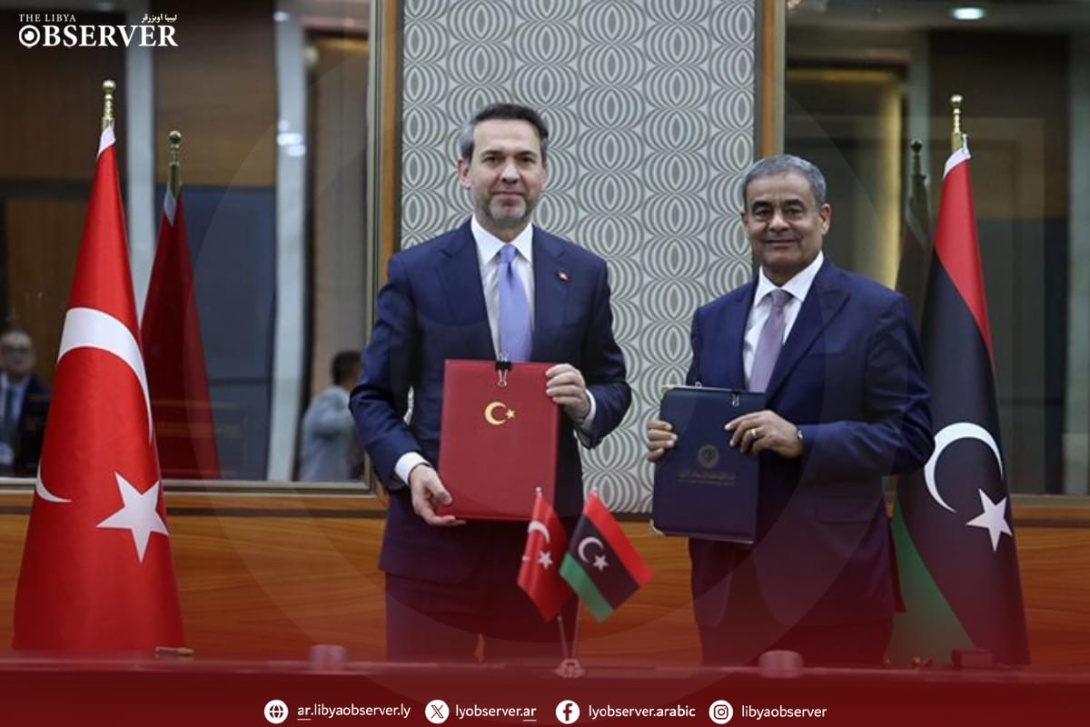Libya and Turkey have signed the minutes of the 22nd meeting of their Joint Economic Committee, marking the resumption of the body’s work after a 17-year hiatus.
The agreement was signed in Tripoli by Turkish Energy and Natural Resources Minister Alparslan Bayraktar and Libya’s Minister of Transport, Mohammed Al-Shuhoubi, who also serves as co-chair of the committee.
Bayraktar, who led the Turkish delegation, said the two sides agreed to expand and diversify cooperation in oil and petroleum product trade between state-owned companies, within the framework of broader energy cooperation.
He added that both countries expressed a shared commitment to developing cooperation in Libya’s onshore and offshore areas, as well as in renewable energy and mining.
Turkey, he said, aims to transform long-standing historical ties with Libya into a mutually beneficial economic partnership, reaffirming Ankara’s support for Libya’s stability, development and long-term prosperity. by






